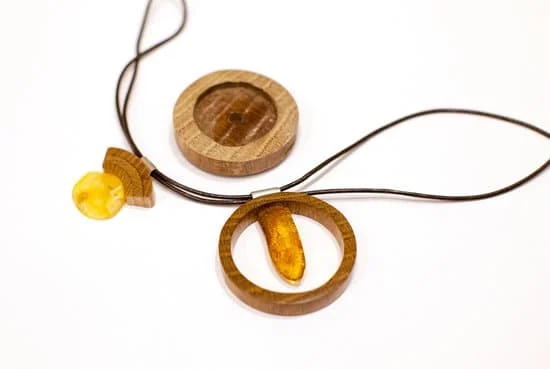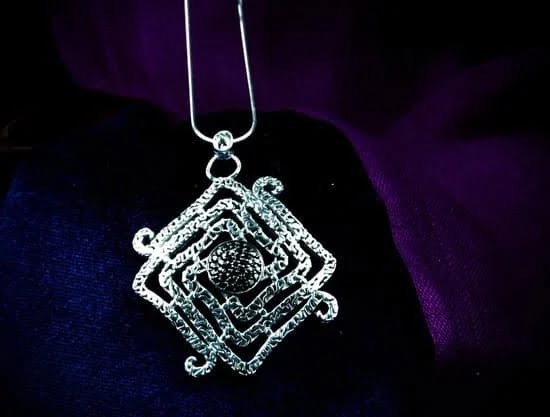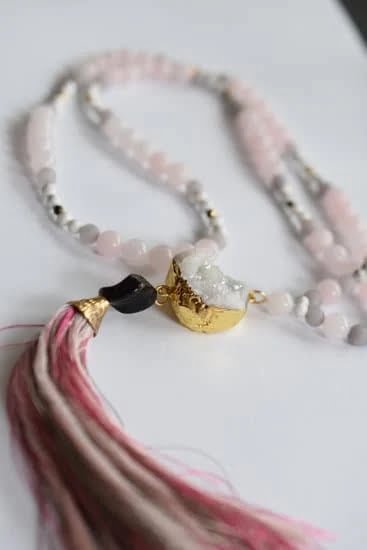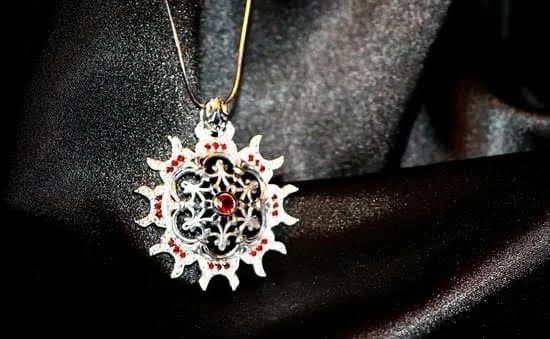Can you swim with gold jewelry? Many people love the idea of accessorizing their swimwear with stunning gold pieces, but there is often confusion about whether it’s safe to do so. In this article, we will explore the chemical reactions that can occur between gold and pool chlorine, the effects of saltwater on gold jewelry, and provide tips for safely wearing and cleaning your gold jewelry after swimming.
The allure of swimming with gold jewelry is undeniable. Whether it’s a pair of elegant earrings, a delicate necklace, or a statement ring, adorning oneself with these luxurious pieces can add a touch of glamour to any beach or poolside look. However, it’s important to understand the potential risks and necessary precautions when wearing gold jewelry in aquatic environments.
During summer months, many people frequent pools for relaxation and exercise. What they may not realize is that chlorine, commonly used in swimming pools to kill bacteria and algae, can actually react chemically with gold jewelry. Similarly, saltwater from oceans or saltwater pools can also have an effect on this precious metal. It’s essential to be informed about how these elements can impact your gold jewelry before deciding whether to wear it while swimming.
The Chemical Reaction Between Gold and Chlorine in Pools
Gold is a valuable and cherished metal that many people love to wear as jewelry, including while swimming. However, it’s important to understand the potential risks of exposing gold jewelry to chlorine in pools. When gold comes into contact with chlorine, a chemical reaction occurs that can cause damage to the metal. Chlorine can weaken the structure of the gold, leading to discoloration, tarnishing, or even structural changes in the jewelry.
The reaction between gold and chlorine is particularly concerning for individuals who frequently swim in pools. The higher levels of chlorine found in public pools can significantly accelerate the damage to gold jewelry. Even small amounts of chlorine from residential pools can still have an impact on the longevity of gold pieces. Therefore, it’s essential for individuals to carefully consider whether they should swim with their gold jewelry.
Those who are wondering “can you swim with gold jewelry” should be aware that exposing it to chlorine may result in irreversible damage over time. It’s crucial to weigh the desire to wear your precious gold jewelry while swimming against the potential risks and costs associated with repairing or replacing damaged pieces.
The Effect of Saltwater on Gold Jewelry
Swimming in saltwater can have a different effect on your gold jewelry compared to swimming in chlorinated pools. Saltwater, which is found in oceans and seas, contains high levels of salt and other minerals that can react with the gold.
The reaction between gold and the minerals in saltwater can cause tarnishing and discoloration of the jewelry. This can be particularly noticeable with 10k or 14k gold jewelry, as they contain higher percentages of other metals such as copper or silver that are more prone to tarnishing.
Furthermore, prolonged exposure to saltwater can also lead to accelerated wear and tear on the metal components of your gold jewelry. The abrasive nature of saltwater combined with sand and other debris found in ocean and sea environments can lead to scratches, pitting, or other damage to your jewelry.
To minimize any potential damage while swimming in saltwater with gold jewelry, it is recommended to follow certain precautions. To ensure that your precious pieces remain in top condition, you should use a protective layer such as clear nail polish or wax over the surfaces that will be submerged in water.
Additionally, it’s crucial to thoroughly clean your gold jewelry after swimming in saltwater by gently washing it with mild soap and water. Proper care will help preserve its luster and prevent any long-term damage from occurring.
| Effect of Saltwater | Precautions |
|---|---|
| Tarnishing and discoloration | Use protective layer (e.g. clear nail polish) or wax |
| Accelerated wear and tear | Thoroughly clean after swimming with mild soap and water |
Tips for Swimming With Gold Jewelry
Swimming with gold jewelry can add an extra touch of elegance and style to your poolside look. However, it’s important to keep in mind the potential effects that chlorine and saltwater can have on your precious pieces. Here are some tips for safely enjoying a swim while wearing your gold jewelry:
1. Limit exposure to chlorine: Chlorine is known to have a chemical reaction with gold, which can cause damage to the metal and potentially lead to discoloration or weakening of the design. To minimize this risk, consider wearing your gold jewelry for shorter periods of time in chlorinated pools.
2. Rinse after swimming: After taking a dip in the pool, be sure to rinse off your gold jewelry with clean water to remove any residual chlorine or other chemicals. This simple step can help prevent any potential damage from prolonged exposure.
3. Store properly: When not wearing your gold jewelry while swimming, store it in a safe and dry place, away from direct sunlight and moisture. This will help preserve its shine and condition for years to come.
It’s important to note that while these tips can help minimize the impact of swimming on your gold jewelry, extended exposure to chlorine or saltwater still poses risks to its integrity. As an alternative, you may want to consider using imitation or costume jewelry specifically designed for underwater wear. These options allow you to enjoy the water without worrying about potential damage to your prized pieces.
How to Safely Clean Gold Jewelry After Swimming
Swimming with gold jewelry is a popular choice for many people who want to add a touch of luxury to their poolside or beach look. However, it’s important to understand the potential impact of chlorine in pools and saltwater on your prized pieces. After taking a dip, it’s essential to properly clean your gold jewelry to maintain its luster and longevity.
Chemical Reaction and Cleaning
Chlorine, commonly found in swimming pools, can react with the alloys in gold jewelry, leading to discoloration and even damage over time. Additionally, saltwater can also have a negative effect on gold due to its abrasive nature. To safely clean your gold jewelry after swimming in these conditions, use a mild soap and warm water solution. Gently scrub the jewelry with a soft-bristled brush to remove any residue that may have accumulated during your swim.
Polishing and Drying
After cleaning the gold jewelry, make sure to thoroughly dry it with a soft cloth to prevent any water spots from forming. For additional shine, you can use a jewelry polishing cloth specifically designed for gold pieces. This will help restore the jewelry’s brilliance and keep it looking as good as new.
Professional Cleaning
If you are unsure about cleaning your gold jewelry yourself after swimming, consider taking it to a professional jeweler for expert care. They can inspect the pieces for any signs of wear or damage and provide a thorough cleaning using specialized equipment and techniques.
By following these steps for safely cleaning your gold jewelry after swimming, you can enjoy your favorite pieces without worrying about potential damage from chlorine or saltwater exposure. Remember that proper maintenance is key to preserving the beauty and value of your precious items.
Alternatives to Wearing Gold Jewelry While Swimming
When it comes to enjoying a swim, many people wonder if they can do so while wearing their beloved gold jewelry. While the allure of a sparkling piece may be tempting, it’s important to consider the potential damage that can occur. However, there are alternatives to completely forgoing your gold jewelry while swimming:
- Wear silicone or rubber jewelry: These materials are non-reactive and won’t tarnish or corrode when exposed to water, making them a great alternative for those who want to add some flair to their poolside look.
- Invest in waterproof jewelry: Some jewelers offer waterproof options for certain pieces, such as necklaces, bracelets, and even earrings. These pieces are specifically designed to withstand exposure to water without any damage.
- Opt for costume or fashion jewelry: If you want to accessorize while swimming but don’t want to risk damaging your valuable gold pieces, consider wearing costume or fashion jewelry instead. These affordable options come in a wide variety of styles and designs.
By considering these alternatives, you can still enjoy accessorizing while swimming without risking damage to your cherished gold jewelry.
Additionally, taking proper care of your gold jewelry after swimming is essential for maintaining its luster and quality. After enjoying a swim while wearing gold pieces, it’s important to follow these steps for safe cleaning:
- Rinse with lukewarm water: After swimming in chlorinated pools or saltwater, rinse your gold jewelry thoroughly with lukewarm water to remove any lingering chemicals or residue.
- Gently pat dry: Use a soft cloth to gently pat your gold jewelry dry. Avoid rubbing vigorously, as this could cause scratches or damage.
- Polish with a soft cloth: Once dry, use a soft polishing cloth specifically designed for cleaning and shining gold jewelry. Avoid using abrasive materials that could scratch or diminish the quality of the metal.
By following these tips and considering alternative options for accessorizing while swimming, you can protect the beauty and integrity of your gold jewelry without missing out on poolside style.
Mythbusting
Solid Gold Doesn’t Rust
One common misconception about swimming with gold jewelry is that because gold doesn’t rust, it is completely safe to wear in the water. While it’s true that gold itself doesn’t rust or corrode, its interaction with other chemicals in the water can still cause damage over time. Chlorine and saltwater can cause discoloration or dullness in gold jewelry, especially if it has intricate designs or includes other metals.
Gold Jewelry Is Immune to Scratching
Another myth about gold jewelry is that it is immune to scratching. Gold is actually a relatively soft metal, which means it can easily get scratched or damaged when coming into contact with rough surfaces like rocks, pool tiles, or sand at the beach. When swimming, there’s a higher risk of accidentally rubbing your jewelry against these abrasive materials, leading to scratches and wear over time.
You Can Swim With Any Type of Gold Jewelry
Many people assume that any type of gold jewelry is safe for swimming, but this isn’t necessarily true. Pieces with gemstones or delicate settings may be more susceptible to damage from chlorine or saltwater. The harsh chemicals can weaken prongs and settings, making it easier for stones to become loose or fall out. It’s important to consider the specific type of jewelry and its durability before deciding whether it’s safe to wear in the water.
Conclusion
In conclusion, the decision to swim with gold jewelry ultimately depends on a variety of factors. While it may be tempting to wear your favorite pieces while taking a dip in the pool or ocean, it’s important to consider the potential consequences. The chemical reaction between gold and chlorine in pools can lead to discoloration and damage, while saltwater can also have negative effects on your precious jewelry.
However, if you simply cannot resist wearing your gold jewelry while swimming, there are some precautions you can take. Using a protective coating or opting for a lower karat gold can help minimize the risk of damage. Additionally, properly cleaning and caring for your jewelry after swimming is essential to preserving its beauty and longevity.
Ultimately, making an informed decision about whether or not to swim with gold jewelry comes down to weighing the risks and benefits. While there are alternative options available for accessorizing at the beach or poolside, some individuals may find that they are willing to take the necessary precautions in order to enjoy their favorite pieces underwater.
Whatever you choose, it’s important to be aware of the potential effects so that you can make the best choice for your precious jewelry.
Frequently Asked Questions
Can You Wear Gold Jewelry in the Pool?
Yes, you can wear gold jewelry in the pool, but it is not recommended. Chlorine in pool water can potentially damage the metal over time and affect its luster. It’s better to remove your gold jewelry before swimming to avoid any potential damage.
Will Gold Jewelry Tarnish in Water?
Gold jewelry is resistant to tarnishing in water, so it won’t tarnish as quickly as other metals like silver. However, chlorinated water or saltwater can still have a negative impact on the appearance of your gold jewelry over time.
Can I Swim in the Ocean With My Gold Chain?
While it is possible to swim in the ocean wearing your gold chain, it’s not advisable. Saltwater can be abrasive and cause damage to the metal, affecting its shine and potentially leading to other issues with the jewelry. To preserve the quality of your gold chain, it’s best to remove it before swimming in the ocean.

Welcome to my jewelry blog! My name is Sarah and I am the owner of this blog.
I love making jewelry and sharing my creations with others.
So whether you’re someone who loves wearing jewelry yourself or simply enjoys learning about it, be sure to check out my blog for insightful posts on everything related to this exciting topic!





